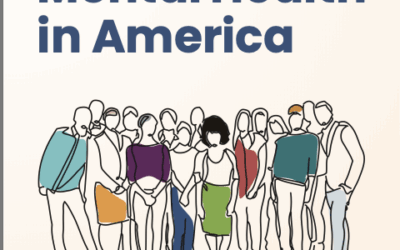As higher education institutions began to cancel the spring 2020 semester and some even through this upcoming fall semester, a huge factor for many students is the financial implications of COVID-19 and how that might hinder their ability to pay for school. For many students who returned to their homes at the onset of the pandemic, they had to find essential jobs to keep their families afloat and afford daily expenses. On top of the monetary impacts of COVID-19, many college students across the U.S. must now face additional financial burdens that affect their capability to afford tuition.
Albeit much of the country is struggling financially due to the effects of COVID-19 (on top of other reasons), college students face particular hurdles. College students and their families have to navigate the financial costs of college (depending on financial aid) through tuition, room and board, dining plans, transportation, technology and cell phone bills, and much more. Even prior to COVID-19, the costs of college are insurmountable at times. In a June 2015 national survey, 70% of college students reported feeling stressed about their personal finances and 60% reported worrying about having enough money to pay for school.
Many students work on- or off-campus jobs to help offset some of the expenses; during COVID-19, however, when operations closed, most people could not work the same amount of hours.
Fortunately for some, my University—The University of Richmond—covered the costs of the hours per week students work for on-campus jobs and work study programs, but this was not the case for all schools. Furthermore, college students with off-campus jobs or internships may have lost ability to work those hours, which might not be covered under the school they attend.
In fact, more than three out of five (63.3%) respondents in a Core Spaces survey of 2,500 college students said the pandemic resulted in economic difficulties for themselves and their families. Some unique situations to college students could include:
- Losing the income of an on- or off-campus job
- Covering rent payments for off-campus apartments, even after moving home
- Losing summer jobs or internships that were paying the student
- The uncertainty of the job market for graduating students
- Many college students cannot get stimulus checks because they don’t file taxes as an independent (many are claimed as dependents)
It is clear that college students are feeling the physical, financial, and socio-emotional impacts of the coronavirus pandemic. With the uncertainty of Fall 2020 plans, it is no surprise that many students are struggling to make ends meet and prioritize their own mental health. As the theme of this blog is primarily on mental health, I want to highlight the connections between financial stress and mental health—a duo that many are feeling right now.
How are financial wellness and mental health related?
According to a growing body of research, financial stress can have imminent implications on the state of one’s mental health or stress state. In a meta-analysis from the University of Southampton, researchers examined 65 studies on debt and mental health. The final report in the Clinical Psychology Review found a correlation between mental illness and financial problems. The findings are summarized in the infographic below:
With these key findings, I hope that my own university and others around the U.S. will focus on the financial needs of their very own students, and that growing understanding of the virus will help people find the resources they need.
As state economies begin to open and cases increase again, the unpredictability of the pandemic can certainly cause intense stress and uncertainty. With all of these factors considered, I have created a list of financial aid grants and services below for college-aged folks and their families. Please feel free to share these resources to spread awareness of these funds and if you are in the financial place to do so, please consider donating money to mutual aid funds or time, food, and services to help people in need. And, remember to take care of yourself during such challenging times. Self-care is just as important!
Financial Relief Funds & Free Resources:
RISE Student Navigator Network:
- A portal for college students affected by COVID-19 to seek help. When you apply here, a case manager will reach out to you to help you find emergency financial aid, apply for public benefits, and connect with local resources.
Course Hero Student Emergency Aid Fund:
- Supporting relief funds for college students impacted by the COVID-19 health crisis. Fill out the form here to express your interest in receiving support from this fund
- Any student enrolled in a U.S. college or university is eligible to apply. Reach out to emergencyfund@coursehero.com with any questions
APALA COVID-19 Community Fund:
- Fund to help workers and their families with direct financial support, with a one-time payment of $500 to support families who are ineligible for other forms of government assistance due to immigration status or other barriers
- The application can be accessed here
National Queer and Trans Therapists of Color Network:
- The Mental Health Fund (MHF) for Queer and Trans People of Color provides financial support for QTPoC to work with psychotherapists in an effort to address the economic barriers inherent in healthcare and the mental health system
- The Mental Health Fund provides financial support for up to 6 sessions with a psychotherapist. Applicants can request up to $100 per session. Learn more about the application process here
- The QTPoC Mental Health Practitioner Directory can be accessed here to find licensed practitioners across the country that are registered with the network
Higher Education Emergency Relief Fund – Student Aid:
- Provides funding to institutions to provide emergency financial aid grants to students whose lives have been disrupted, many of whom are facing financial challenges and struggling to make ends meet
- Application processes and eligibility requirements can be found here
National Organization for Rare Disorders RareCare® Assistance Programs:
- Assistance programs to help patients obtain life-saving or life-sustaining medication they could not otherwise afford. These programs provide medication, financial assistance with insurance premiums and copays, diagnostic testing assistance, and travel assistance for clinical trials or consultation with disease specialists.
- List of assistance programs and their application processes can be found here
- The COVID-19 Resource Center for patients and families can be found here
Southern Smoke Emergency Relief Program:
- Provides emergency funding to those employed by or own restaurants or bars or are employed by a restaurant or bar supplier that are faced with unforeseen expenses that cannot or will not be covered by insurance
- The application can be accessed here
The Loveland Foundation:
- Access for Black women and girls apply for free mental health services through The Loveland Foundation Therapy Fund
- Learn more about the services and application process here
Southeast Asia Resource Action Center:
- The SEARAC has compiled a comprehensive list of COVID-19 Rapid Response Resources for Asian Americans in each U.S. state here
Health Brigade:
- Virginia’s oldest free clinic located in Richmond with medical, mental health, community outreach, and care coordination services for low-income and uninsured persons
- Call 804-358-6343 to speak to the medical clinic and check your eligibility to access services here
DoorDash COVID-19 Financial Assistance Program for Dashers:
- In response to the public health emergency posed by COVID-19, we’re announcing a new COVID-19 Financial Assistance Program for eligible Dashers in the United States (including Puerto Rico), Australia, and Canada as described here
Domestic Workers’ Coronavirus Care Fund:
- Established by the National Domestic Workers Alliance to provide emergency assistance for home care workers, nannies and house cleaners to support them in staying safe and staying home to slow the spread of the coronavirus and to care for themselves and their families; access $400 in emergency assistance that will be mailed to you
- At this time, the Coronavirus Care Fund application is only open to domestic workers who are participants in activities of the National Domestic Workers Alliance (NDWA), NDWA chapters, affiliate organizations, and circles or who were NDWA dues-paying members or Alia users prior to March 16, 2020. We will open the Fund for applications from other domestic workers as soon as funding allows.
Additional Resources:
- How to Get More Financial Aid After COVID-19, steps listed by Ben Luthi
- “Where can I find emergency financial resources to help with COVID-19 hardships?”, lists of grants for nonprofits, individuals, artists, small businesses, and internationally
- COVID-19 Resources for Undocumented Immigrants, spreadsheet of emergency funds, grants, and scholarships for undocumented folks
- “How College Students Can Get Financial Relief in Response to COVID-19”, by Rachel Basinger on iGrad
- Small Business Administration Coronavirus Relief Options, funding options as outlined by the CARES Act
- Coronavirus Aid, Relief, and Economic Security (CARES) Act information
- “Staying Safe During COVID-19”, article and resources from the National Domestic Violence Hotline
- National Adult Protective Services Association (NAPSA), serving older adults and adults with disabilities who are in need of assistance
- National Alliance on Mental Illness (NAMI) COVID-19 Resource and Information Guide, updated June 2020
- Substance Abuse and Mental Health Services Administration (SAMHSA), with the mission to reduce the impact of substance abuse and mental illness on America’s communities
- “7 Kinds of COVID-19 Relief for College Students”, by Anne Helhoski on NerdWallet
Mental Health Direct Care/Hotlines:
National Suicide Prevention Lifeline: 24/7, confidential, and free
- Call 1-800-273-8255 for distress, prevention and crisis resources for you or your loved ones, and best practices for professionals or online chat here
SAMHSA Disaster Distress Helpline: 24/7, confidential, and free
- Call 1-800-985-5990 or text TalkWithUs to 66746 to access the national hotline dedicated to providing immediate crisis counseling for people who are experiencing emotional distress related to any natural or human-caused disaster.
Mental Health America:
- Free online screening tools for mental health conditions here
- General resource list for COVID-19 and mental health here
- For Virginia constituents:
- The Mental Health America of Virginia Warm Line is available at 1-866-400-MHAV (6428) for mental health resources and referrals in Virginia
Therepeasy:
- Help get matched to an online mental health provider here
- Totally free, accessible, and instant matching with a therapist
American Psychological Association Help Center:
- List of national and statewide hotlines for support here
- Search tool to find a psychologist near you for longer-term help here
Crisis Text Line: 24/7, confidential, and free
- Free texting service that can be accessed by texting HOME to 741741 for free, 24/7 crisis counseling
HelpGuide:
- A guide to mental health and wellness, with COVID-19 resources available here
The Jed Foundation: 24/7, confidential, and free
- Text START to 741-741 or call 1-800-273-TALK (8255) for emotional health and suicide prevention support
National Domestic Violence Hotline: 24/7, confidential, and free
- Call 1-800-799-7233 or 1-800-799-7233 for TTY, or if you’re unable to speak safely, you can log onto thehotline.org or text LOVEIS to 22522.
- Para información en español, visita la página “En Español.”
- For Deaf Services, you can contact nationaldeafhotline@adwas.org or by calling 1-800-787-3224(TTY) or 1-855-812-1001(Video Phone)
- Staying Safe During COVID-19 Resource – here
Trans Lifeline Peer Support Hotline: 24/7, confidential, and free
- Call 877-565-8860 to speak with an operator who identifies as trans or gender non-conforming/questioning
- More information on the Trans Lifeline and its services are available here
Sex Workers Outreach Project: 24/7, confidential, and free
- Call (877)-776-2004 to access a volunteer-staffed warmline where current and former sex workers, activists and others seeking peer support can access direct support
- More information on the Sex Workers Outreach Project (SWOP-USA) can be found at this website
Ways to Help & Donate:
- COVID-19 Mutual Aid Fund for LGBTQI+ BIPOC Folks, GoFundMe Page to donate to in support of queer communities of color struggling due to COVID-19
- Asian American Organizations You Need to Know, a list of 20 organizations updated in May 2020 from Diversity Best Practices
- True Colors United, implements innovative solutions to youth homelessness that focus on the unique experiences of LGBTQ young people which you can donate to or take action with to pass important legislation with a Learning Community as well
- Advocates for Youth, works alongside thousands of young people here in the U.S. and around the globe as they fight for sexual health, rights, and justice
- “9 Black LGBTQ Organizations to Donate to Right Now”, a list by Vanessa Maki on a list of Black-run nonprofits for racial and sexual justice to donate to now
- “Why Wearing a Face Mask is Important”, by Faye Annis on Universal Medical
- The Freelancers’ Relief Fund, donate to Working Today, the nonprofit subsidiary of Freelancers Union, 100% of your donation will be distributed to freelancers impacted by the COVID-19 pandemic.
- National Domestic Workers Alliance Coronavirus Care Fund, will provide immediate financial support for domestic workers, and enable them to stay home and healthy
- Petition to Cancel Student Loans by Executive Order, some experts even believe that debt cancellation is the only way to avoid a depression
- BIPOC in Agriculture and Food: A Resource Guide, organizations and farms to support across the country
- How to Support Food Banks during COVID-19, tips from Feeding America
Anna Marston, Intern
Mental Health America of Virginia



